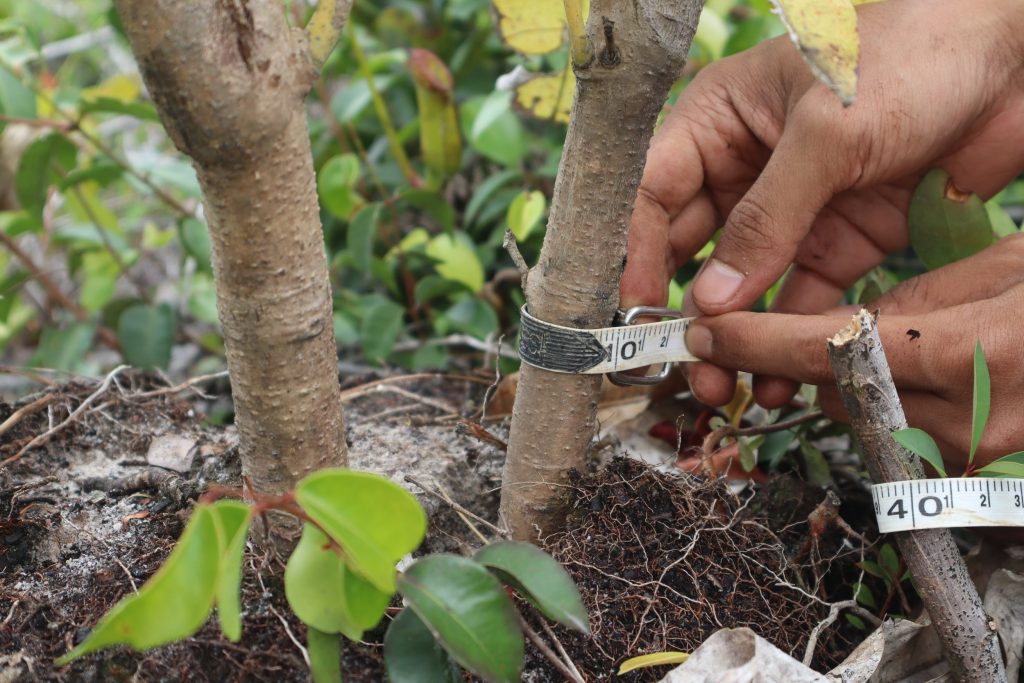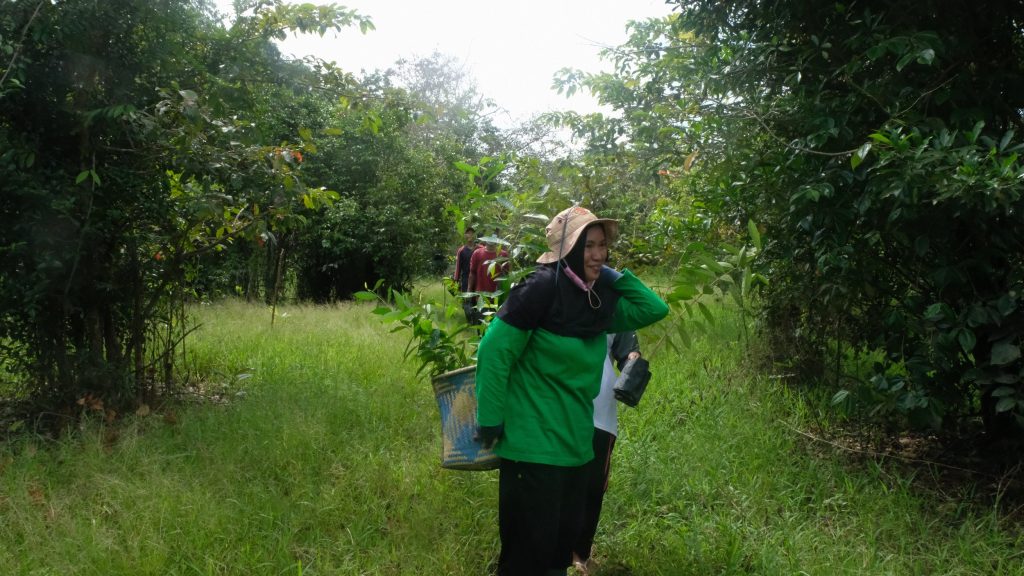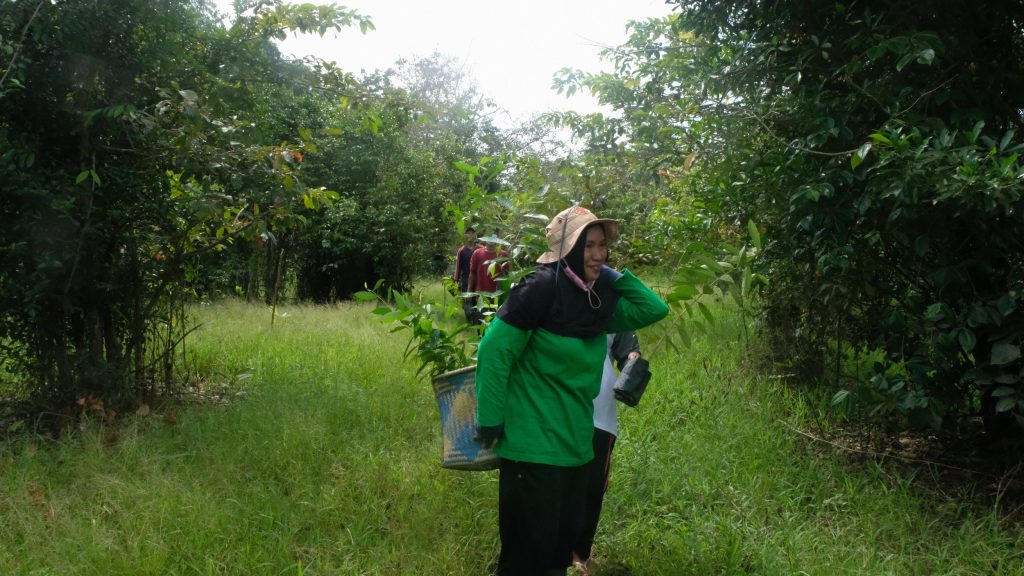This impact story was originally published here.
At the start of 2022, a group of Action for Sustainable Derivatives (ASD) members teamed up to launch the ASD Impact Fund, which allows our members to pool resources and collectively invest in on-the-ground projects that drive sustainable palm production in priority sourcing areas. This collective action aims to address sustainability risks in palm derivatives’ supply chains in the most direct way possible.

Now, as the ASD Impact Fund celebrates one full year of supporting on-the-ground project work, there is demonstrated positive impact towards ASD’s impact vision – protecting and restoring landscapes, enhancing workers’ and communities’ lives, and addressing smallholders’ needs for responsible practices.
Ten members of ASD from across cosmetics, personal care, healthcare and oleochemicals markets – Clariant through its Foundation, The Clorox Company, Croda International, The Estée Lauder Companies through its Charitable Foundation, Gattefossé, Haleon, Natura &Co, Seppic, Stéarinerie Dubois, and Zschimmer & Schwarz – contributed to the ASD Impact Fund in 2022, which has gone towards supporting the Kaleka Mosaik Initiative.
The aim of our partnership with Kaleka (an Indonesia-based non-profit and project implementor) is to find ways to protect and restore the landscape while driving sustainable economic growth in two of the largest palm-producing districts in Central Kalimantan, Indonesia – Seruyan and Kotawaringin Barat. This is where ASD member companies source on average 5%* of their palm derivatives in the region.
Big ambitions for positive impact
Launched with Tides Foundation, the mechanism through which the Impact Fund operates, ASD members intend to provide $1.5 million to support the Kaleka Mosaik landscape initiative over five years (through 2026). This includes supporting the certification of more than 1400 smallholder farmers covering up to 4000 hectares of land, replanting of 490 hectares, and encouraging local communities to protect around 6500 hectares of natural forests in their villages by incentivizing the implementation of restorative agriculture in 65 hectares of land.
The initiative has two main governance elements that contribute to developing and maintaining sustainable landscapes: jurisdictional certification and sustainable village development. The jurisdictional approach to certification seeks to apply the principles and criteria of a supply chain certification scheme, in this case the Roundtable for Sustainable Palm Oil (RSPO), to all producers of that commodity within a governmental, administrative area, such as a state or district. To support the adoption of sustainable livelihoods among rural communities in Central Kalimantan, two district-wide sustainable village development programs were created in both Kotawaringin Barat (Gawi Bahaum) and Seruyan (Gawi Bapakat).
In our first year of support (April 2022 through March 2023), local village farmers have shown incredible enthusiasm for the project, and the region is on track to implement activities and meet the targeted outcomes.

Year 1: Key achievements supported by the ASD Impact Fund
The Kaleka Mosaik Initiative met or exceeded its objectives for the first-year scope of work, supported by the ASD Impact Fund. Key outcomes included:
- Completion of a blueprint document of agri-food business clusters for regional economic development based on community-based agroforestry commodities, designed to provide the roadmap for districts to pursue green development by increasing the value of sustainably produced or harvested crops;
- 500 hectares of forest in one village protected through a social forestry scheme;
- 614 farmers from five villages involved in the certification process (and will undergo an external audit process in June 2023);
- 90 hectares of land replanted in two villages, with 50 hectares multi-cropped with high economic value species;
- 204 forest farmers from five farmer groups in two villages SVLK certified (Timber Legality Verification for sustainable timber); and
- One village (Sapundu Hantu) provided with alternatives to promote fire-free agricultural practices.
Challenges and lessons learned
As support for Kaleka via the ASD Impact Fund grows and evolves, there are a couple challenges to overcome.
Kaleka’s jurisdiction-wide village sustainable development program is intended to benefit communities while ensuring forest and nature conservation in almost 200 villages across the two districts of focus. The ASD Impact Fund will finance Kaleka’s work to provide support and incentives to improve village livelihoods over the next few years. However, village communities will need to commit to the process. That means adhering to regulations for protecting forests and preventing fires, and understanding that incentives may take time to be disbursed. Kaleka will continue to engage with local people, explaining the stages of the program, the function of each stage, and the benefits that can be obtained through community involvement in the program.
There is also a challenge to keep tree-covered land in the hands of individuals in non-state forest areas from being converted, especially into oil palm plantations. In Central Kalimantan, oil palm plantations currently provide higher economic benefits than maintaining forest cover. The ASD Impact Fund will continue to support Kaleka’s work in the provision of information and understanding on the importance of and incentives to preserving forests.
ASD looks forward to continuing positive impact on-the-ground in priority production landscapes as it kicks off a second year of collective support for the Kaleka Mosaik Initiative through the Impact Fund.
* Based on 2021 purchased volumes
